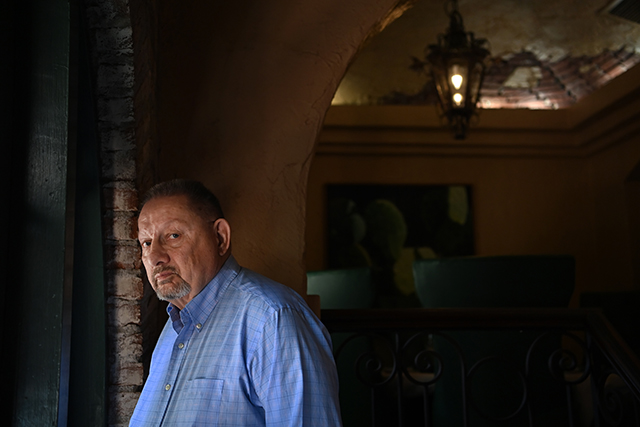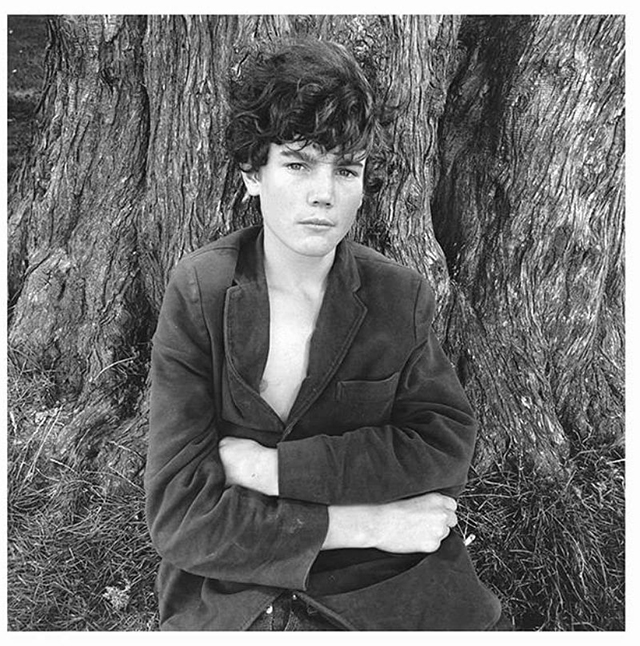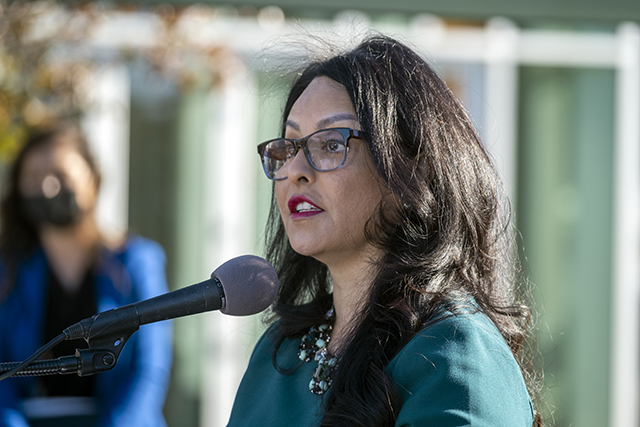
Good morning. It’s Tuesday, Oct. 11.
- A Central Valley town is close to running out of water.
- Jennifer Siebel Newsom to testify in Harvey Weinstein trial.
- And leaked audio causes political implosion in Los Angeles.
Statewide
1.

Coalinga is two months from running out of water. The farming town along the western edge of the San Joaquin Valley relies on one source of water, an allotment from an aqueduct managed by the federal government that was cut this year to a bare minimum. Yet as recently as August, Coalinga’s mayor, Ron Ramsey, was railing against a proposed lawn-watering ban. “Go to the state capitol and they got green grass, don’t they?” he said. “They can do it, but why can’t we?” Washington Post
2.
The sex crimes trial of Harvey Weinstein is underway in Los Angeles, and one of the women expected to accuse him of assaulting her is Jennifer Siebel Newsom, a former actress and the wife of Gov. Gavin Newsom. In a 2017 essay for HuffPost, Siebel Newsom described meeting with Weinstein at a hotel about a role in an upcoming film: “Staff were present and then all of a sudden disappeared like clockwork, leaving me alone with this extremely powerful and intimidating Hollywood legend.” N.Y. Times | A.P.
3.
In sign of how even local politicians can no longer hide from the abortion debate, activists are calling out a city council candidate in the Bay Area’s San Mateo. Rod Linhares has declined to offer an opinion on the ballot proposition that would enshrine abortion rights in the state constitution. Cheri Greven, a Planned Parenthood official, said that disqualifies him as a candidate: “We are not in a time for a school board member or a city council member or anybody else to be neutral on abortion rights and access.” S.F. Chronicle
4.

About 4,200 feet up in the Cuyamaca Mountains east of San Diego there’s a gorgeous campground that has 14 wooden cabins equipped with propane heaters. At William Heise County Park, you can walk a short loop that opens up to views stretching from the Anza-Borrego desert to the Pacific Ocean, then grab an apple pie in nearby Julian. The California travel guide author Ann Marie Brown included the campground among her eight picks for fall camping in the West. Sunset
Northern California
5.

A wildfire that tore through Siskiyou County in September destroyed a rarity in rural Northern California: a historically Black, working-class community. Lincoln Heights, in the town of Weed, was first populated by lumber-mill workers recruited from the South in the 1920s. Their descendants remained for generations. The lumber mill, once the ticket to a better life, is now seen as a symbol of devastation: Investigators believe it was the source of the blaze. N.Y. Times
6.
After a 2018 shooting at the YouTube campus in San Bruno, a security company official named Martin Nielsen was under pressure to procure rare concealed-carry permits for his agents, who were assigned to protect executives at Facebook. So he brokered a deal with Santa Clara County sheriff’s officials to financially support the sheriff’s reelection bid in exchange for permits, Nielsen testified in court on Monday. The agreed amount: $90,000. Mercury News
7.
A 33-year-old man with the word “evil” tattooed across his fingers has been repeatedly assaulting women on the streets across San Francisco, accusers say. In at least six police reports, victims described being chased, grabbed, and even forcibly kissed. He has faced no consequences, wrote Heather Knight: “So far, the city’s criminal justice system seems to be sending Ann and the other women a clear message: You’re on your own.” S.F. Chronicle
8.

In 1967, the photojournalist Elaine Mayes was living in San Francisco’s Haight Ashbury when she embarked on a project to capture the hippies, runaway teens, and drug addicts in her neighborhood. She didn’t like how the movement was being portrayed in the press, she told KQED: “I wanted to make something that I thought might be more truthful.” Her work is collected in a new volume, “Haight-Ashbury: Portraits 1967-1968.” Elainemayesphoto.com | Monovisions
Southern California
9.

A day after the release of leaked audio in which Los Angeles City Councilwoman Nury Martinez made openly racist remarks, the L.A. Times described the fallout as a “political implosion, unparalleled in recent L.A. history.” A roundup of developments:
- Martinez surrendered her title as president of the City Council on Monday, saying “I am truly ashamed,” but she stopped short of resigning. That wasn’t good enough for a growing list of political leaders who demanded resignations from Martinez as well as Councilmembers Kevin de León and Gil Cedillo — who were speaking with her in the recording. L.A. Times | LAist
- The L.A. County Federation of Labor accepted the resignation of its president, Ron Herrera, who was also present for the conversation. But it had another concern: the source of the leak, which came from the federation’s offices. In a memo, the group called the recording a “serious security and privacy breach” and vowed to seek prosecution. L.A. Times
- Columnist Erika D. Smith: “Their words, now bouncing around social media in snippets of audio, bluntly confirm the worst fears of many Black Angelenos: That Latino politicians treat political power as a zero-sum game.” L.A. Times
10.

Once known for for its orange groves and cattle ranches, the Inland Empire has become a sea of nearly 4,000 warehouses. But some cities have now had enough. In the past two years, elected officials in a half-dozen Inland Empire cities have imposed moratoriums on warehouse construction. “We’re living in this logistical bubble while trying to raise our families,” said Pam Lemos, who has lived her entire life in Colton. N.Y. Times
11.
Sharon Alexander Dreyfus’ grandparents bought a lush, 1-acre parcel of land at the foot of the San Gabriel Mountains. She inherited it, along with a Spanish ranch-style house, in 2015, but had no interest in moving there. So when she heard of the Tongva tribe’s desire to obtain ancestral lands, Dreyfus gave it to them. The handover marks the first time in nearly 200 years that the Tongva would have land to call their own. L.A. Times | LAist
12.

The legendary Los Angeles radio disc jockey Art Laboe has died. Laboe, who got his first radio job at 17 and filled airwaves for more than 70 years, coined the phrase “oldies, but goodies” and was credited with helping end segregation in Southern California by organizing live DJ shows that attracted white, Black, and Latino listeners who danced to rock ‘n’ roll. Laboe’s final show was produced last week and broadcast Sunday night. He was 97. L.A. Times | A.P.
Get your California Sun mugs, T-shirts, and hoodies.

Thanks for reading!
The California Sun is written by Mike McPhate, a former California correspondent for the New York Times.
Give the gift of the California Sun.
Forward this email to a friend.
Click here to stop delivery, and here to update your billing information or cancel your support.
The California Sun, PO Box 6868, Los Osos, CA 93412
Wake up to must-read news from around the Golden State delivered to your inbox each morning.
